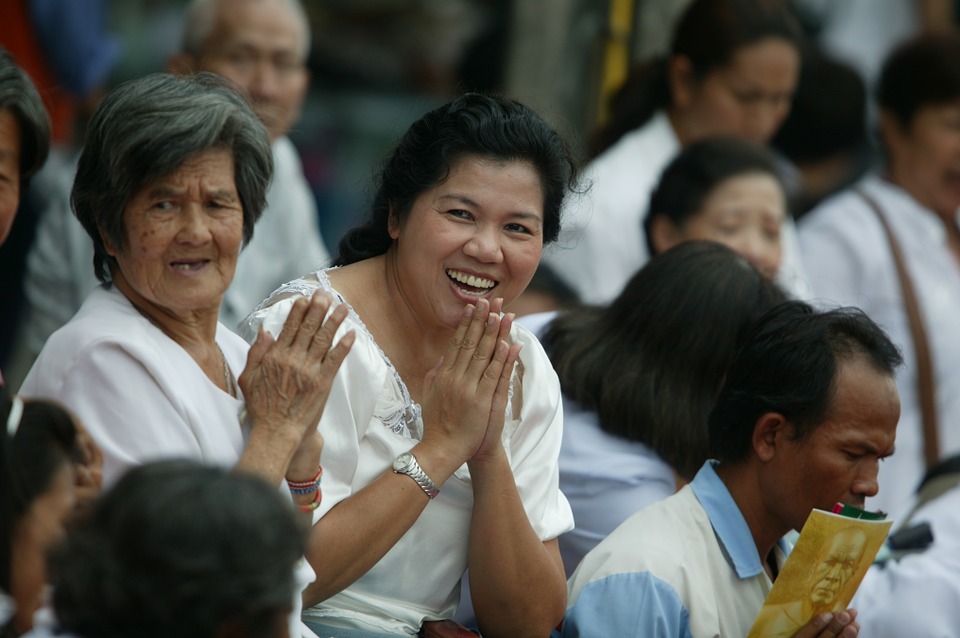With the sudden pandemic outbreak, we had to drop popular greeting traditions quickly. The good old handshake or cheek kisses gave way to the Indian namaste or the Japanese/Chinese head bow. But have you ever
With the sudden pandemic outbreak, we had to drop popular greeting traditions quickly. The good old handshake or cheek kisses gave way to the Indian namaste or the Japanese/Chinese head bow. But have you ever ask yourself how people say “hello” in other countries? You’ll be surprised to learn the numerous unusual ways people greet around the globe.
If you get the opportunity to travel to one of these destinations one day, here are some unorthodox greetings customs across the world that are worth knowing:
1. Stick Your Tongue Out – Tibet
No, we are not talking about grinning! We meant to stick your tongue out to say hello. While this is not considered as very polite in some countries, in Tibet, it’s their greeting ritual. According to the Institute of East Asian Studies at UC Berkeley, this Tibetan tradition originates from a way of showing that your tongue was not black, unlike a cruel King of the 9th century, hence that you were not his reincarnation.
2. Rub Your Noses and Foreheads – New Zealand & Saudi Arabia

While in both countries rubbing noses and foreheads is the common tradition for greeting each other, the meaning differs in each country.
In New Zealand, this custom takes its source from the ancient Maori tribe and is commonly called “hongi”, which means “breath of life”. They believe that this ritual comes directly from their gods.
In Saudi Arabia, however, since bringing one’s nose and forehead during prayers is an act of respect, especially for Arabs, it is a way of honoring others when greeting them.
3. Snap Your Fingers – Benin & Liberia
If you’ ve known someone for a long time in Benin, the tradition wants you to snap your fingers to greet that person. The same salutation ritual is popular in Liberia where people do a firm handshake before snapping their fingers.
4. Present a Strip of Silk – Mongolia
A piece of cotton or silk, also known as the Hada, is offered by Mongolians to greet a person visiting their home. It is considered an act of expressing their best wishes to their guests, who must gently take the cloth with both hands while bowing.
5. Squeeze Your Thumb – Zambia

Shaking hands, and supporting the right hand with the left one, is widespread in Zambia. Yet, in some areas like Luapula, people also clap hands and squeeze thumbs when saying hello.
6. Clap 3 Times – Mozambique
In Mozambique, before saying “moni”, which means “hello”, people clap their hands three times. The number of claps indicates an added degree of respect to be expressed. This tradition is also followed in Ghana, Cameroon, and Senegal
7. Sniff Sniff – Tuvalu

The Sogi gesture is a very simple greeting in Tuvalu! It takes an original spin on the cheek kissing ritual as when you bring your face against the other person, instead of a kiss, you sniff. But no worries, you’ll not have to inhale every person there. This custom is practiced only when you arrive or leave the island.
8. Shake Fists – Niger
In Niger, instead of waving or shaking hands, shaking fists at a head level is a widespread practice among the Kanuri people. While doing this ritual, they will also say “wooshay! wooshay!”, which means “hello! hello!”.
9. Spit Before You Shake Hands – Kenya & Tanzania
The Maassai tribe spit in their palms before a handshake. This greeting tradition is a sign of blessing that is thought to bring good luck for health and longevity.
10. Raise Your Eyebrows – Micronesia
It is as simple as it sounds! People in Micronesia raise their eyebrows as a gesture to say “hello” or acknowledge someone’s presence.
While these are interesting and unusual ways of saying “hello” in other countries, remember to take all the sanitary precautions if you are traveling during the pandemic. Have you recently traveled abroad and came across any other unusual greeting rituals? Share your experience in the comments below.

